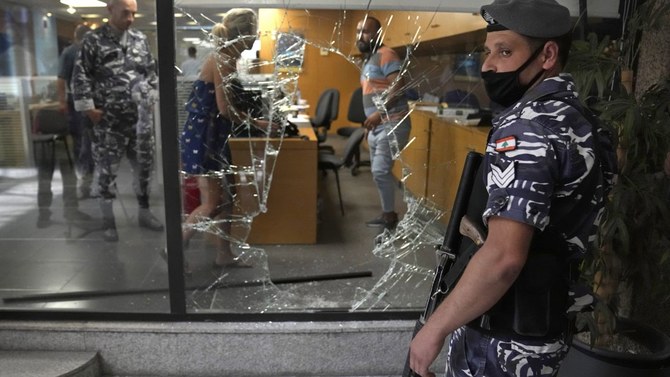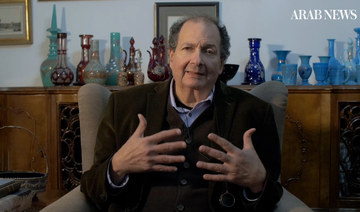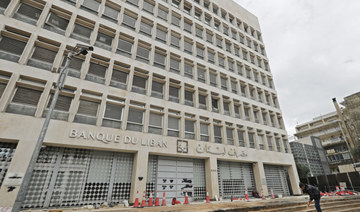BEIRUT: Lebanon could be headed to oblivion, the head of the country’s independent advisory body warned on Monday.
Charles Arbid, president of the Economic and Social Council, told an emergency meeting at the headquarters of the General Labor Union that with no savior on the horizon, the nation risked spiralling out of control.
He said: “We fear that Lebanon as we know it is changing under the leaders who could not care less about its fate.
“Many countries have been forgotten and left to their fate. Poverty and violence prevailed after the world lost interest in them.”
The council, a product of the Taif Agreement, is tasked with conveying the opinion of sectors involved in the formulation of economic and social policies in Lebanon.
The meeting, titled “Save the homeland,” came as a strike by Lebanese banks over judicial prosecutions against them and the non-approval of the Capital Control Bill entered its third week.
Also, on Monday, the Lebanese pound dropped to 81,000 to the dollar. Central bank financial operations fell to $10 million per day as the platform lost its influence on the currency market, specifically the black market.
A source in the Lebanese prime minister’s office told Arab News: “Measures to resolve this impasse must be taken by the Ministry of Justice and the Supreme Judicial Council. The prime minister cannot intervene, even though he wishes he could since the issue is affecting Lebanon’s stability.”
The Association of Banks in Lebanon said it would only end its strike when judicial prosecutions carried out by Mount Lebanon Public Prosecutor Judge Ghada Aoun stopped. And it urged the Supreme Judicial Council to suspend prosecutions by some judges and block lawsuits against banks by depositors.
The association has refused to be held fully responsible for the country’s financial crisis.
Central bank governor, Riad Salameh, told Al-Qahera News: “The black market in Lebanon is outside the control of the central bank, which has become unable to solve crises because solutions require a concrete national project.”
Meanwhile, The People Want to Reform the System — an association to fight corruption — announced that judge Aoun had decided on Monday to prosecute Societe Generale and its chairman, Antoun Sehnaoui, on charges of money laundering, while freezing the bank’s funds. The judge was acting based on a complaint submitted by the association.
The group said Aoun had referred the case to Nicolas Mansour, the first investigative judge in the Mount Lebanon Court of Appeal, requesting an inquiry and the issuance of necessary arrest warrants.
On Monday, the Parliamentary Bureau failed to set a date for a legislative session to discuss and approve the Capital Control Bill.
Parliament’s Deputy Speaker Elias Bou Saab said: “We recognize the parliament’s right to legislate, as happened previously, but the capital control draft, according to what was issued by the joint committees, must be accompanied by a comprehensive plan.”
Dozens of MPs have refused to hold a legislative session until a new president is elected.
MPs Melhem Khalaf and Najat Saliba have been staging a parliament sit-in for more than a month in protest over the presidential election stalemate.
Addressing their fellow MPs over Zoom, they urged them to, “face those who are squabbling over the presidential election and delaying it, in search for a president that serves their personal criteria.”
They said the situation violated the provisions of the constitution and added: “It is a mass suicide; rather a deliberate killing and extermination of an entire people.”
Tensions between the Free Patriotic Movement and Hezbollah have intensified after FPM head Gebran Bassil on Sunday criticized Hezbollah Secretary-General Hassan Nasrallah for his party’s support of Marada Movement leader Suleiman Franjieh for the presidency.
Bassil said: “We choose a president based on conviction. No one can impose anyone on us, and no one can threaten us with chaos.”


























